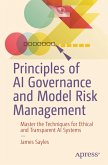This book offers the latest research results and predictions in data protection with a special focus on post-pandemic society. This book also includes various case studies and applications on data protection. It includes the Internet of Things (IoT), smart cities, federated learning, Metaverse, cryptography and cybersecurity. Data protection has burst onto the computer security scene due to the increased interest in securing personal data.
Data protection is a key aspect of information security where personal and business data need to be protected from unauthorized access and modification. The stolen personal information has been used for many purposes such as ransom, bullying and identity theft. Due to the wider usage of the Internet and social media applications, people make themselves vulnerable by sharing personal data. This book discusses the challenges associated with personal data protection prior, during and post COVID-19 pandemic. Some of these challenges are caused by the technological advancements (e.g., Artificial Intelligence (AI)/Machine Learning (ML) and ChatGPT).
In order to preserve the privacy of the data involved, there are novel techniques such as zero knowledge proof, fully homomorphic encryption, multi-party computations are being deployed. The tension between data privacy and data utility drive innovation in this area where numerous start-ups around the world have started receiving funding from government agencies and venture capitalists. This fuels the adoption of privacy-preserving data computation techniques in real application and the field is rapidly evolving. Researchers and students studying/working in data protection and related security fields will find this book useful as a reference.
<
Data protection is a key aspect of information security where personal and business data need to be protected from unauthorized access and modification. The stolen personal information has been used for many purposes such as ransom, bullying and identity theft. Due to the wider usage of the Internet and social media applications, people make themselves vulnerable by sharing personal data. This book discusses the challenges associated with personal data protection prior, during and post COVID-19 pandemic. Some of these challenges are caused by the technological advancements (e.g., Artificial Intelligence (AI)/Machine Learning (ML) and ChatGPT).
In order to preserve the privacy of the data involved, there are novel techniques such as zero knowledge proof, fully homomorphic encryption, multi-party computations are being deployed. The tension between data privacy and data utility drive innovation in this area where numerous start-ups around the world have started receiving funding from government agencies and venture capitalists. This fuels the adoption of privacy-preserving data computation techniques in real application and the field is rapidly evolving. Researchers and students studying/working in data protection and related security fields will find this book useful as a reference.
Dieser Download kann aus rechtlichen Gründen nur mit Rechnungsadresse in A, B, BG, CY, CZ, D, DK, EW, E, FIN, F, GR, HR, H, IRL, I, LT, L, LR, M, NL, PL, P, R, S, SLO, SK ausgeliefert werden.
Es gelten unsere Allgemeinen Geschäftsbedingungen: www.buecher.de/agb
Impressum
www.buecher.de ist ein Internetauftritt der buecher.de internetstores GmbH
Geschäftsführung: Monica Sawhney | Roland Kölbl | Günter Hilger
Sitz der Gesellschaft: Batheyer Straße 115 - 117, 58099 Hagen
Postanschrift: Bürgermeister-Wegele-Str. 12, 86167 Augsburg
Amtsgericht Hagen HRB 13257
Steuernummer: 321/5800/1497
USt-IdNr: DE450055826
Bitte wählen Sie Ihr Anliegen aus.
Rechnungen
Retourenschein anfordern
Bestellstatus
Storno









